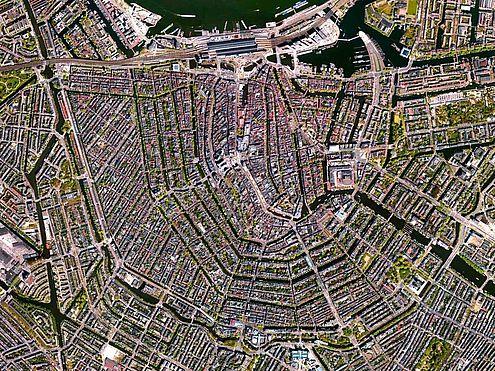To adapt or not to adapt: a study into the adaptability of the urban environment
Our cities will get more prone to risks, climate change and urbanization, both represent great challenges of our time. Climate change on the one hand will further stress our urban infrastructure, productivity, liveability and even our lives, while urbanization concentrates people and economic capital. In order to prevent damage, adaptation measures are needed at the right location.
It is important to find those locations, locations where vulnerability, “the degree to which geophysical, biological and socio-economic systems are susceptible to, and unable to cope with, adverse impacts of climate change” (IPCC, 2014), is high.
Vulnerability generally consists of exposure, sensitivity and adaptability (V = f (E, S, A)), see figure 1. Where exposure and sensitivity are relatively easy to determine, adaptability is a vaguer concept. A lot of definitions of adaptability (also sometimes referred to as adaptive capacity, coping capacity or capacity) exist. Most of the research in adaptability is done on adaptability of society or humans and on a large spatially scale, region or country. In this thesis an attempt in characterizing the adaptability of the urban water system on neighbourhood will be made.

The purpose of this thesis is to investigate the different definitions used in vulnerability studies, to make a definition for adaptability regarding the urban water system and operationalize it for the Netherlands. With this definition in mind an attempt will be made in constructing a method or tool for determining the adaptability of the water system that can be used in vulnerability studies and adaptation planning. Which in the end will be tested on one or multiple case(s).

Student:
Thomas Deurloo
Contact:
T.J.C.Deurloo@student.tudelft.nl
Graduation committee:
- Prof. dr. ir. N. van de Giesen (TU Delft)
- Dr. ir. F. van de Ven (TU Delft)
- Dr. F. Hooimeijer (TU Delft)
- Ir. J. Klein (Witteveen+Bos)